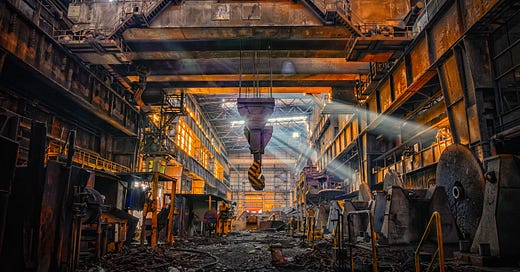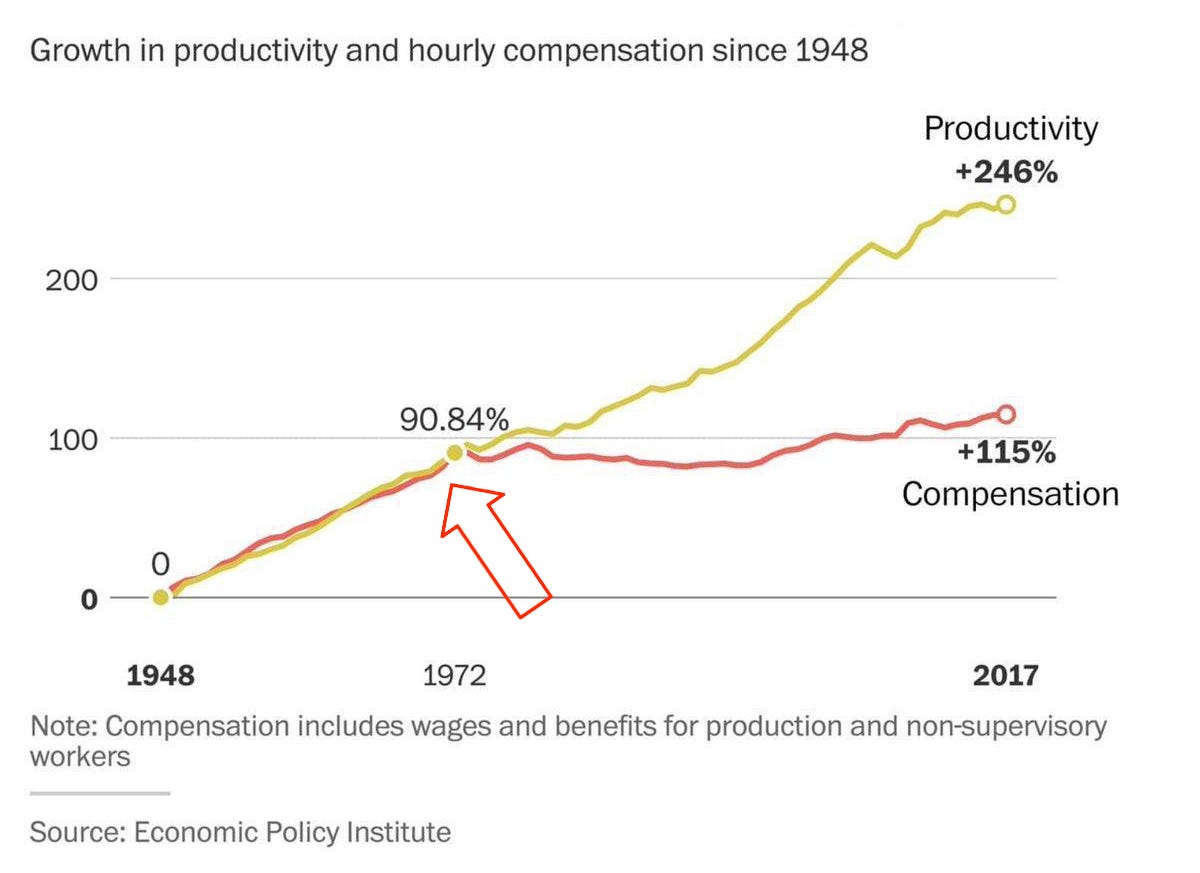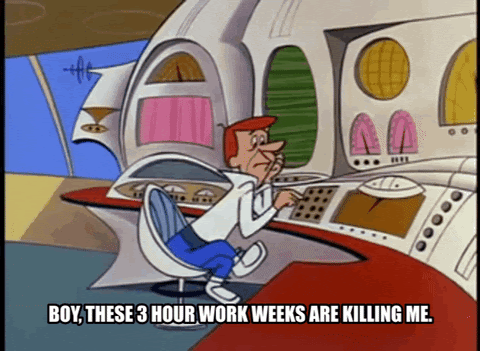If you haven’t seen the science-fiction show The Expanse, be sure to treat yourself. It’s good stuff. Mass unemployment is portrayed as an enduring problem. 300 years in the future, labor-saving automation technology has advanced to the point that very little old-fashioned human labor is needed to keep society going. There just isn’t enough work to occupy half of Earth’s population, and that's a major problem.
The solution to this problem is obvious. Really obvious. So obvious, in fact, that it’s hard to believe that 300 years could pass without anyone thinking of it.
Cut the work week in half. That way, twice as many people would be needed to work the same number of hours. Virtually overnight, that 50% unemployment rate would shrink to zero. The situation in The Expanse is self-evidently silly when you stop to think about it. Half the population exhausts themselves working all the time, while the other half sits idle. That’s like leaving a glob of butter on one side of your breakfast toast, un-scraped across the bread. You would have to be some kind of lunatic to eat toast this way. That butter glob practically cries out to be evenly spread. Not adjusting the length of the work week is just as senseless. Reducing the number of work hours expected of each individual acts like a giant butter knife. It distributes the labor burden evenly so that everyone enjoys a similar work-to-leisure ratio.
Back in 1930, legendary economist John Maynard Keynes was thinking along these lines. He predicted that, given the pace of technological advancement, we’d all be working 15 hour work weeks by now. But Congress hasn’t adjusted the length of the work week since 1940, when it last amended the Fair Labor Standards Act. The chickens of congressional inaction came home to roost within a single generation; by the early 1970s worker compensation stopped rising along with worker productivity.
As shown in The Expanse, automation eats away at the overall demand for workers. Armed with labor-saving tech, a shrinking workforce of employees can accomplish more and more during the workday. But since their employers increasingly have options in the growing ranks of the unemployed, they can’t negotiate for raises reflecting those productivity gains. The graph above dramatically illustrates this dynamic. Thanks to tech, employers have been benefiting from increased productivity without having to pay for it. If we are ever to live in the glorious future of leisure envisioned by John Maynard Keynes, labor needs a fair shake at the bargaining table.
A gradual draw-down in the length of the work week fixes the problem. As long as each person works less, we can keep the same number of workers employed. Preventing a collapse in the demand for labor is the only way we can hope to preserve our disappearing middle class.








So I had this thought when you posted, and came back around to it this morning. There's a loss of expertise that would come with diluting the time an individual spends in a role. 2x20 hour workers are less experienced than a single 40 hour worker. It's also probably true that the biggest automation gains are coming in the most tedious manual labor. But more and more skilled technicians are required to maintain those machines. And I fear George Jetson up there with his 3 hour workweek will have only Homer Simpson level competency.
Love it.